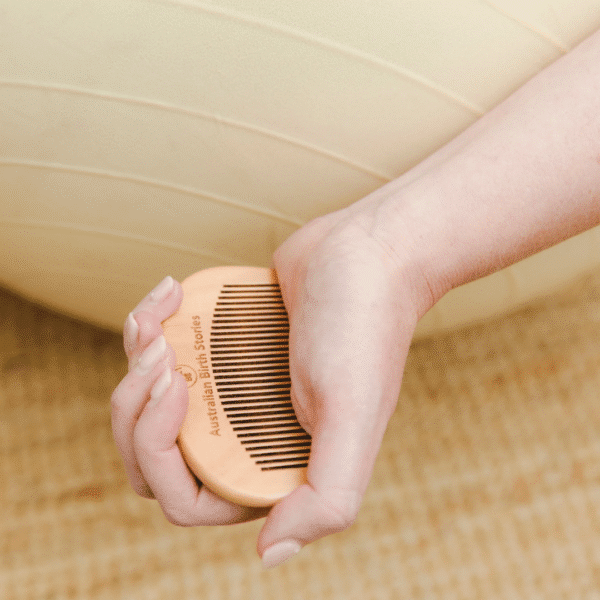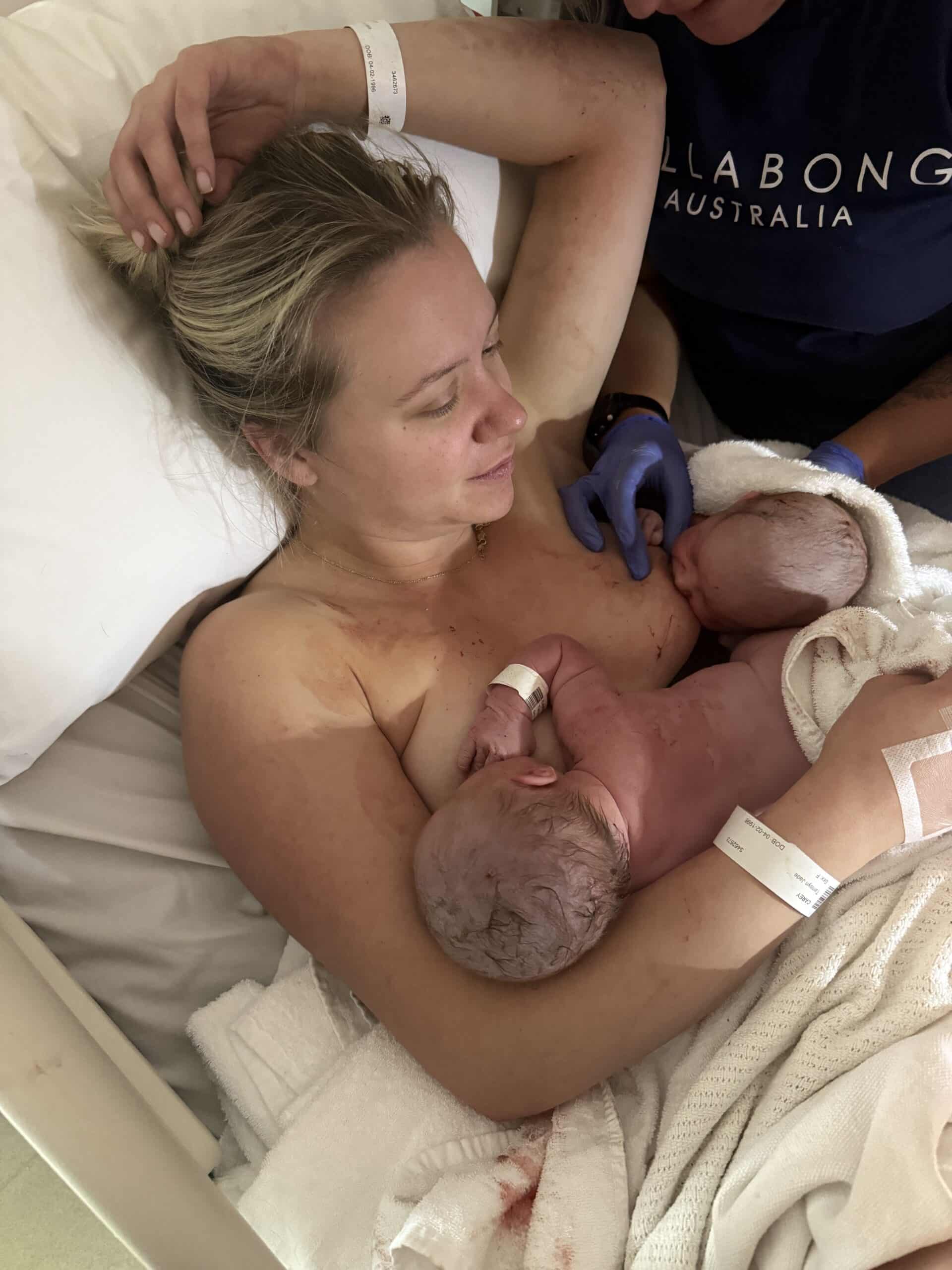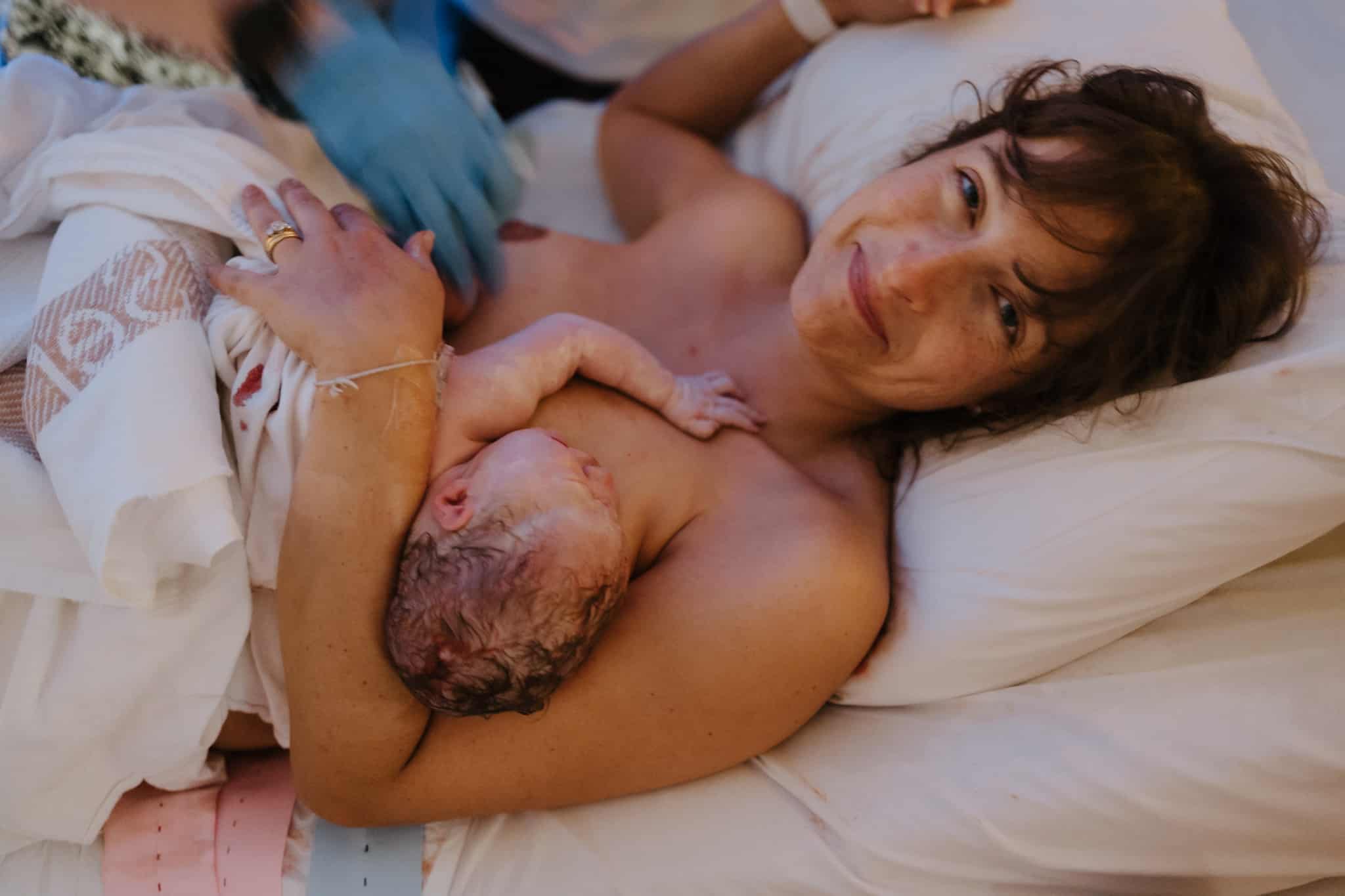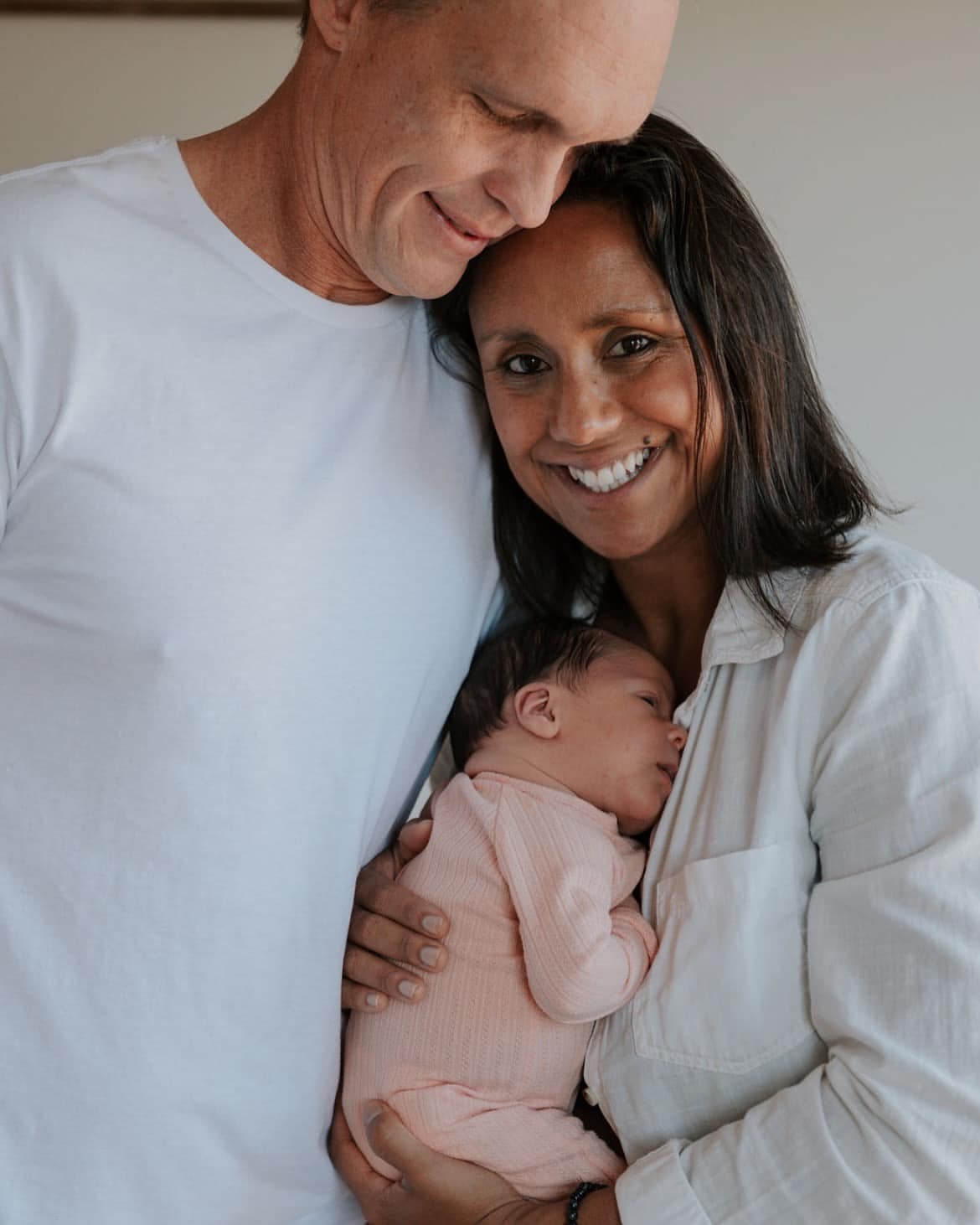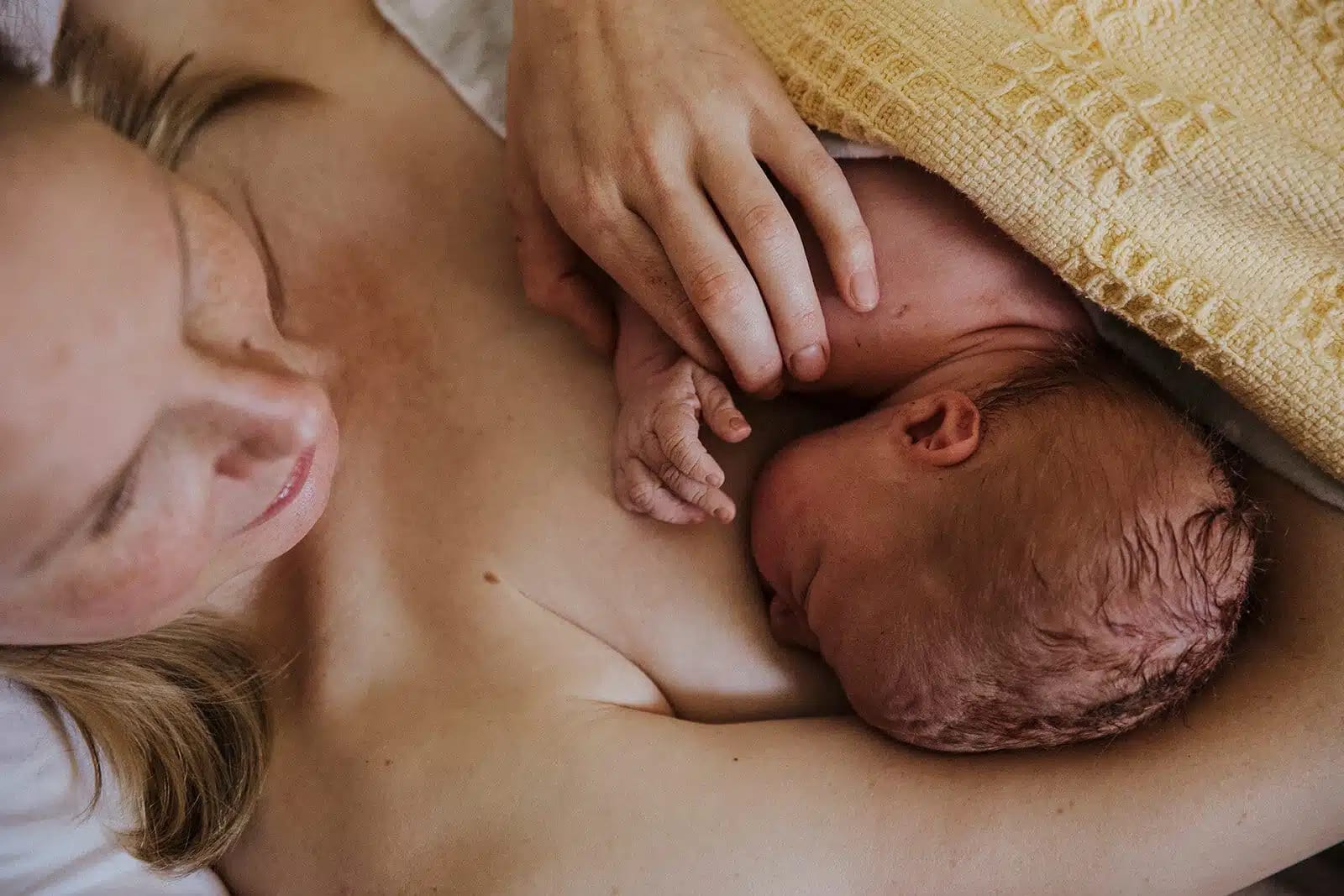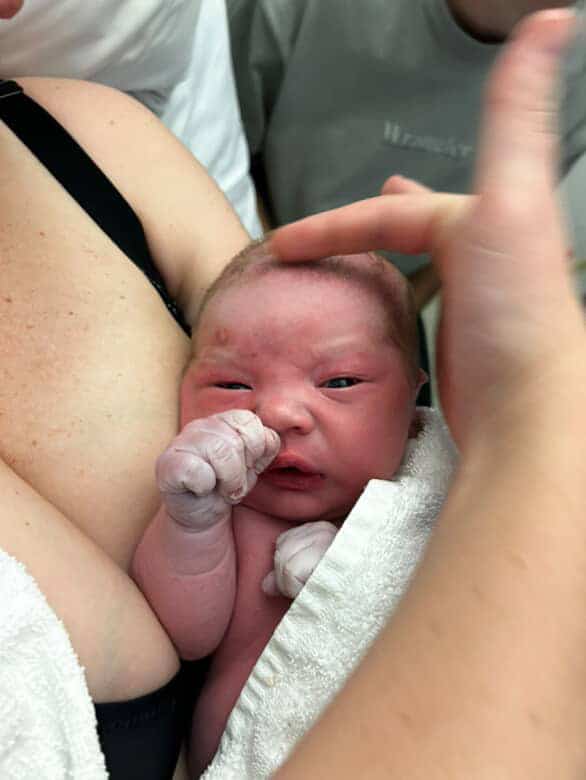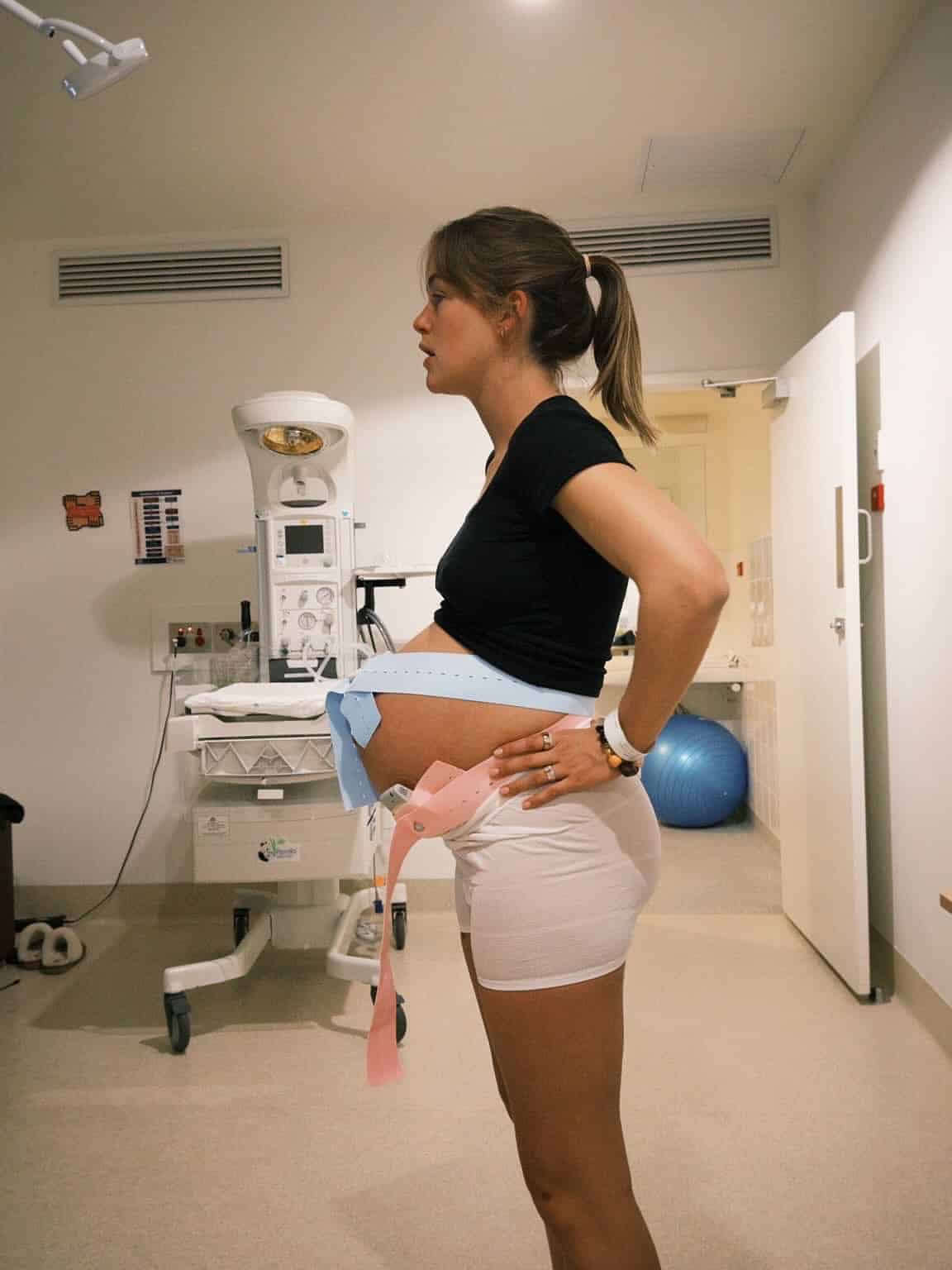Podcasts Yumi
EPISODE 223
Yumi
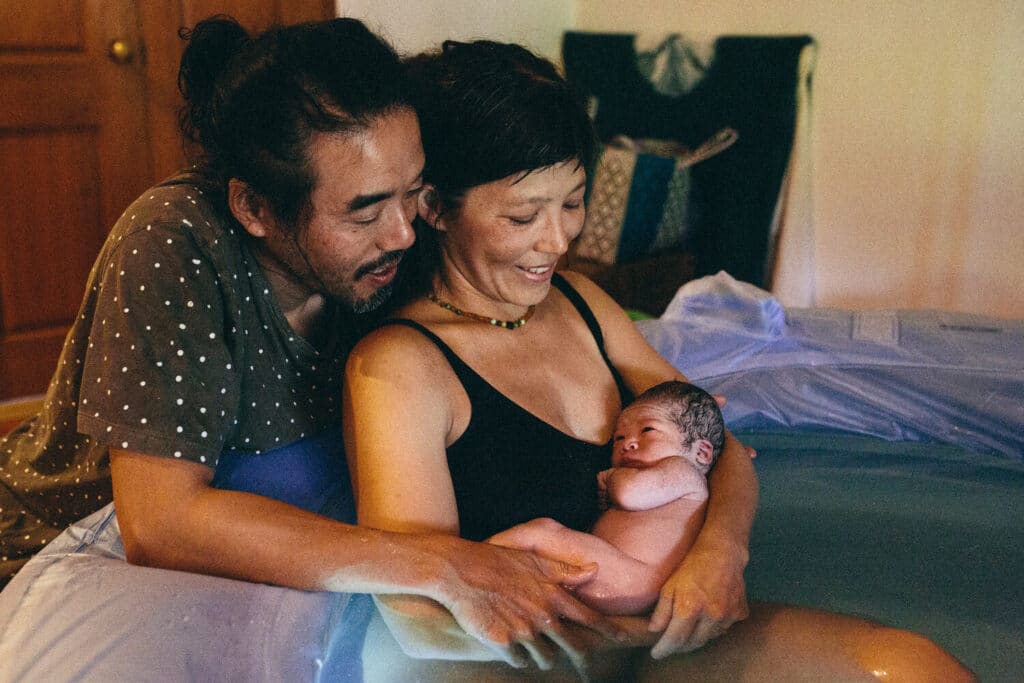
Yumi shares her story from her hometown in NW Sydney on Darug Country. She lives with her husband, Taka and her two children, Mina (5) and Noah (2). She returned to Sydney from Melbourne when she was 10 weeks pregnant with Mina and booked in at her local hospital. She missed out on the midwifery program so was placed under obstetric care.
“A few years before falling pregnant I read Rhea Dempsey’s interview in Dumbo Feather and it made a huge impact on me. I wanted to have a natural birth, without intervention and I went into pregnancy and birth with that as my guide. I went in hopeful of the system; I went in with faith thinking that things had changed from the seventies when Rhea recalled her own traumatic hospital birth experience. I just believed that the system was different now.”
It was at her 20week appointment when her obstetrician remarked that her baby was small and added that they would probably induce at 37weeks. “That little remark changed everything…it was an immediate alarm bell for me. That day I found a doula and started arming myself for what the reality of my birth could be. The little battles started that day and they continued.”
When Yumi entered her third trimester she was required to have extra ultrasounds and CTG monitoring as her OB was still concerned with her baby’s size. Taka started attending the appointments with Yumi and regardless of their race (Taka is Japanese, Yumi is half-Japanese) and the fact that their baby was measuring average size according to Japanese growth charts, the OB continued to warn of a stillbirth.
“We asked for the statistics and research and the OB just ignored us and said: I can’t give you numbers; I just know it. That was a big thing for us; that he was ignoring a big aspect of our cultural making. It does make me think that the system that he was operating under, us not being the majority cultural making of that system, we were already not ticking the boxes to have a natural birth.
“My doula, Lu McCarthy, was my strong sounding board; she reiterated that I was doing the right things, she told me to keep going, so I did.”
The hospital continued to require weekly consults and at her 37 week appointment, the OB took her blood pressure, looked at his calendar and announced that he was booking her in for an induction. Yumi refused and a midwife was brought into the room to witness her refusal. From that day onwards, Yumi was treated with blatant disregard and, in some cases, was bullied for her choices. Sly comments were made whenever she went in for CTG monitoring and she was having ultrasounds every three days. Despite the push from the midwives, Yumi remained steadfast.
“I had this faith till the very end: I just believed it was going to be different once it was time to give birth. I just really believed in the system. I didn’t feel like I was wanting to pull out. I wasn’t ready to go there, to accept that what I was experiencing was racism. I’m bi-racial so I never wanted to believe that that’s what was happening.
“At 41 weeks I went in for a CTG and that’s when the midwives said they would not let me go past 42 weeks. I started to feel the pressure then but my doula and a midwife friend looked at my reports and ultrasounds and reiterated that everything was fine, that I had nothing to worry about. The baby measured at 3.2kg all of a sudden, up from 2.4kg the week before. Two days before 42 weeks I went to an acupuncture session and the practitioner said to me: Are you sure you want to do this because it is a form of induction; the baby might not be ready and you’re nudging it along. But I knew I wanted to do it on my terms. She held my stomach and spoke to the baby and it was the first time someone had spoken to the baby with kind and gentle words throughout my whole pregnancy.”
Yumi slept well that night and the following night she started experiencing very early labour; period pain cramps every thirty minutes. She slowly progressed when her waters started leaking, like a little drip and she worked with her doula, agreeing that it was best she stayed home and monitored the situation. Labour slowed and recommenced, slowed and recommenced for three days. On Wednesday morning they decided to make their way to hospital as she wasn’t sleeping and the pain and discomfort was taxing.
“I knew I would be on the clock the moment I walked in; I didn’t want to be on the clock. They checked me and I was 4cm and I was really happy with that. I was having really strong, long contractions and they started to become really difficult to manage. The midwives left us alone for a few hours and Lou suggested we go outside and walk through contractions. Lou and Taka held me up as it was so painful but it’s what I needed to do. We went back in and I got in the shower; it felt amazing on my lower back and the contractions slowed down and a young midwife came in and told me they needed to put a CTG on me. I like movement in my contractions but she made me lie on the bed and it was excruciating. It was so hard, I remember turning to my doula and begging her to walk or move and the midwife refused because they needed the reading.
“The obstetrician wanted to introduce syntocinon and I desperately didn’t want that. I knew about the cascade of interventions and my doula agreed that I was so far into labour, it had been 4 days, I kept trying to get off the bed and they kept forcing me back on.
“And then it was time to get off the bed to push and I started squatting down through the contractions. I had a young midwife and during that time two student midwives came in with the Head Midwife and she told me I wasn’t pushing. It was slow, Mina kept coming in and out, she was turning, the Head Midwife kept coming in and told me I wasn’t pushing and she handed a pair of scissors to the student midwife and said: You need to cut her. And the student midwife said: I’ve never done this before.”
Lu spoke up in that moment and announced that Yumi did not want to be cut and did not give them consent to do so. The Head Midwife gave Yumi one more push before she would perform the episiotomy.
“I just went into fight or flight mode and she was born. I was in complete shock and exhaustion. They put Mina on my chest…I wasn’t there. I remember the Head Midwife saying: Speak to her, speak to her, she’s your baby. But I sat there and I couldn’t believe that I’d survived that, that I’d survived them, that I’d surv
ived their language. I had to switch off from my baby to do that.
“The reason I still have so much fear around that birth still, is it was the first time I felt fear in my body of someone trying to control the situation. My body was insignificant to them and it still scares me to be in a position like that.
“They got me back on the bed and I did want to have a physiological third stage but then three of them began manually pushing on my abdomen, I had no idea what they were doing and it was just excruciating pain, they were basically pushing out the placenta; they pulled on the cord and it came away from the placenta so they had to push more to get the placenta out. To now have experienced the other extreme of birth, that feels so violent now, it feels so abusive, it should never have happened.”
The midwives didn’t mention that the cord had broken away from the placenta but Lu did and she advised Yumi to keep a close eye on her body in case she had retained anything. She experienced fever and chills on and off for two days post-birth and then one evening she passed two 50c sized pieces of placenta and immediately felt better.
“I couldn’t see anyone in those first few weeks. I didn’t recognise it as trauma; I thought it was birth. Mina wasn’t a great sleeper either so it got brushed into that exhausted space. You do gaslight yourself and start thinking that you’re not one of those mums….I don’t have that love…I just thought I didn’t have the love. I felt detached from her when I looked at her. It’s still one of the things that I struggle to reconcile with. I have a five year old that I love dearly but I have a birth experience that was traumatic for me and probably for her, too.”
“Australia is a very multicultural country yet our systems are a monocultural space. The fear based structure of the hospital is really dangerous. You either become so fearful that you say yes to what they’re telling you or you become so fearful that you don’t want to go anywhere near them.”
Yumi has thought a lot about her caregivers and whether or not they reflected on their practice and the eventual outcomes. Mina was 2.7kg at 42weeks; if she had been delivered at 37weeks she would have been very small. Similarly, did the Head Midwife demanding an episiotomy reflect on the fact that Yumi delivered her baby without any tears or grazes?
“My fear came from the system, from the people trying to control my body. I had no fear of birth and that’s why I chose to have another baby although I realise it’s a big privilege to have the option of homebirth and a private midwife. If that wasn’t an option I’m not sure if I would have had another baby.
“I was processing and understanding the trauma throughout my second pregnancy and Jo Hunter and the Birth Time team interviewed and filmed me; it was therapeutic to tackle some really difficult questions.
“I was excited to not have to deal with the system, to just labour on my own. I was 39+5 when I woke with sharp pains up my anus so I went to the toilet and started timing my contractions…by 4am they were becoming quite intense. I woke Taka who blew up the birth pool and at 4:30am everyone arrived and women started trickling in while I made labour aid from the book The First Forty Days. I laboured mostly in the kitchen, everyone was in the living room where the birth pool was and they were drinking tea and laughing and it was just complete trust in the labouring woman; no one was worried about anything. They were enjoying each other’s company while I brought these contractions on. I just loved that aspect of it.
“It started to get intense and I got vocal and Jo encouraged me to get into the water and I told her it didn’t feel amazing like she said it would. I was there for about an hour. My waters broke mid-contraction towards the end. Taka was holding me. I was on my knees and then upright holding onto Taka and then I sat back and caught Noah. Gosh that oxytocin high is so real; it’s the best feeling ever. I had the complete opposite with Mina – just adrenalin shakes – and then to experience that peace and calm, immense love and joy, it was so beautiful.
“The first forty days are my favourite time; I just loved it. I’d love to have another baby just to experience those first forty days.”
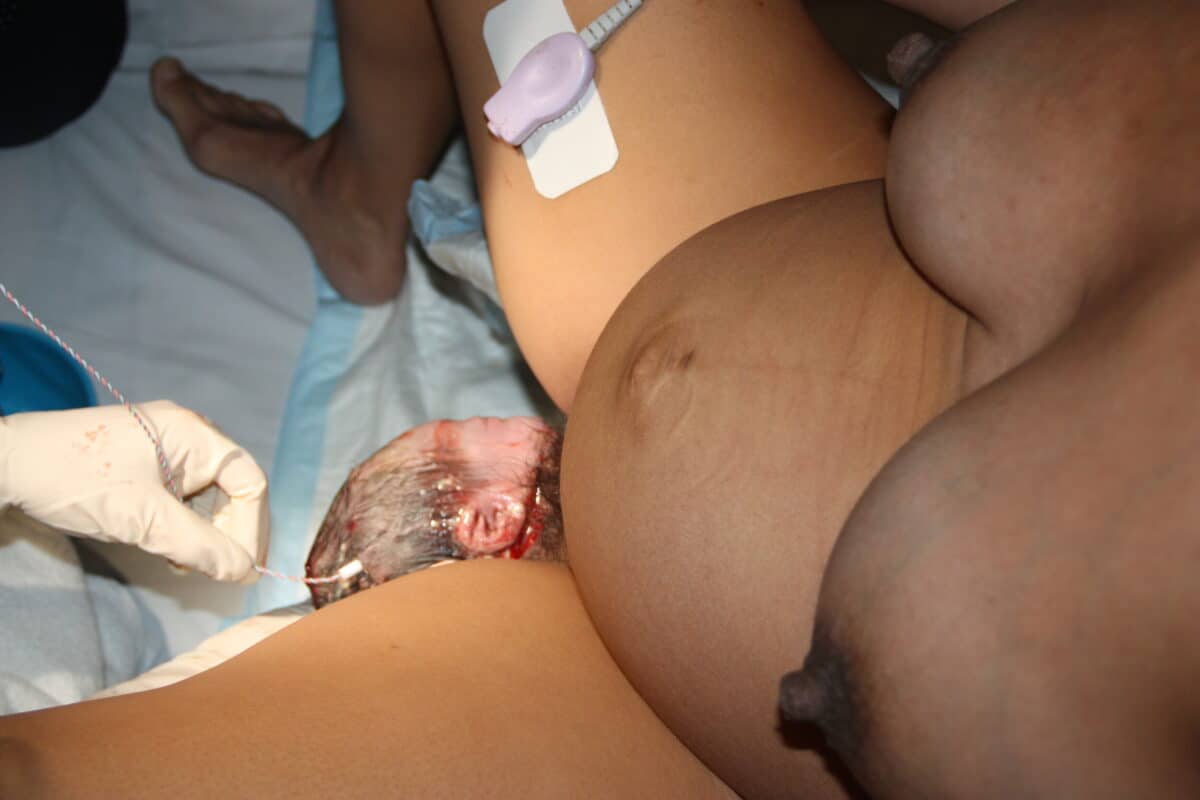
Image by Lucretia McCarthy
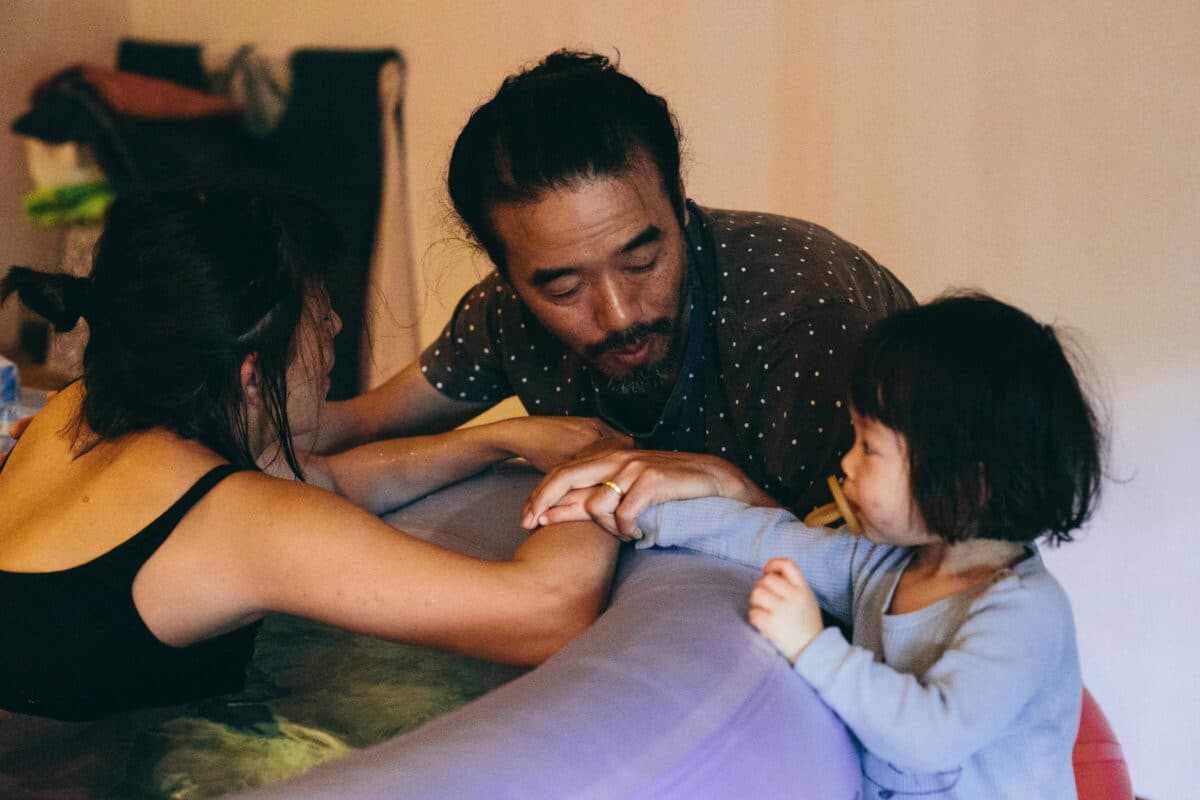
Image by Jerusha Sutton
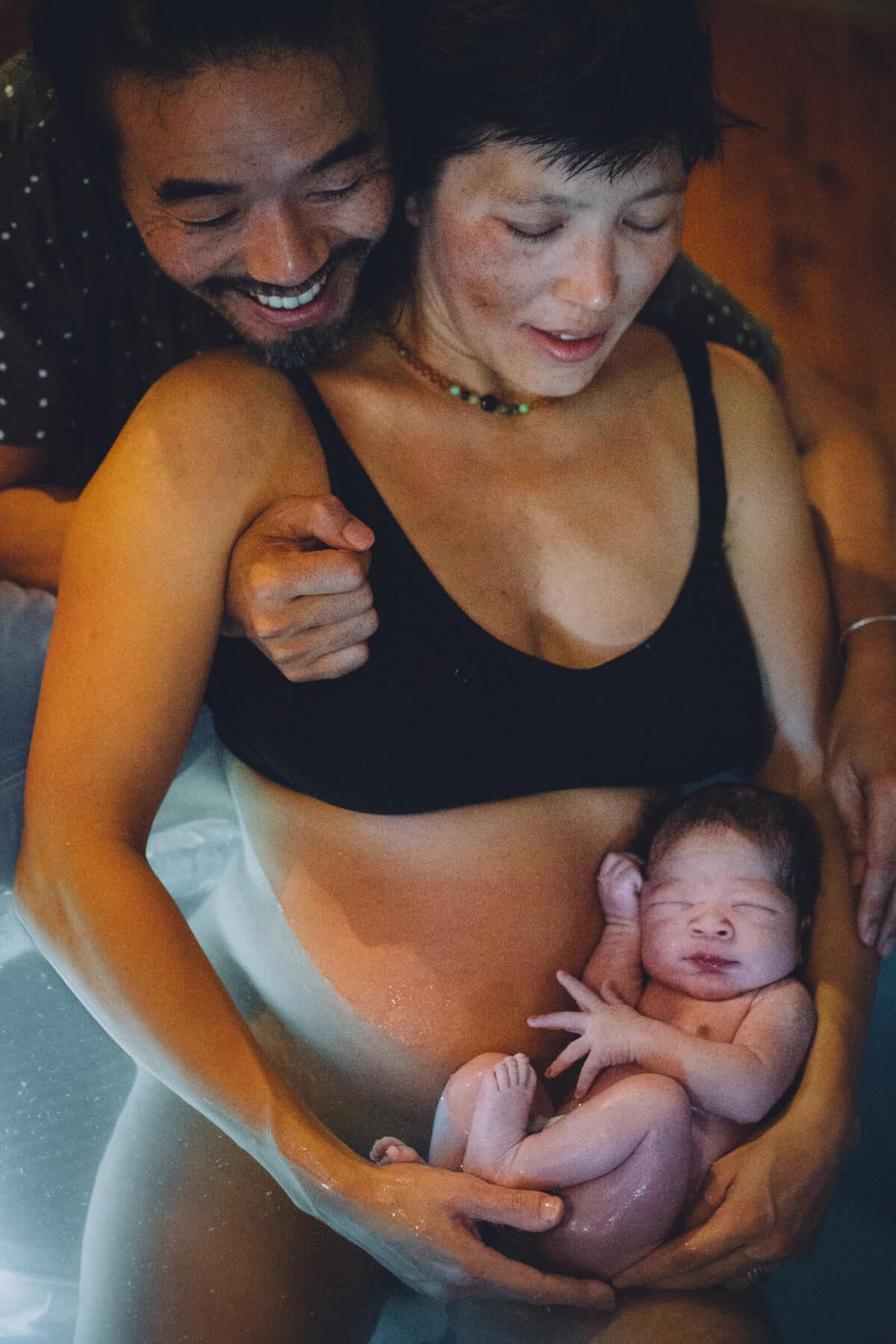
Image by Jerusha Sutton
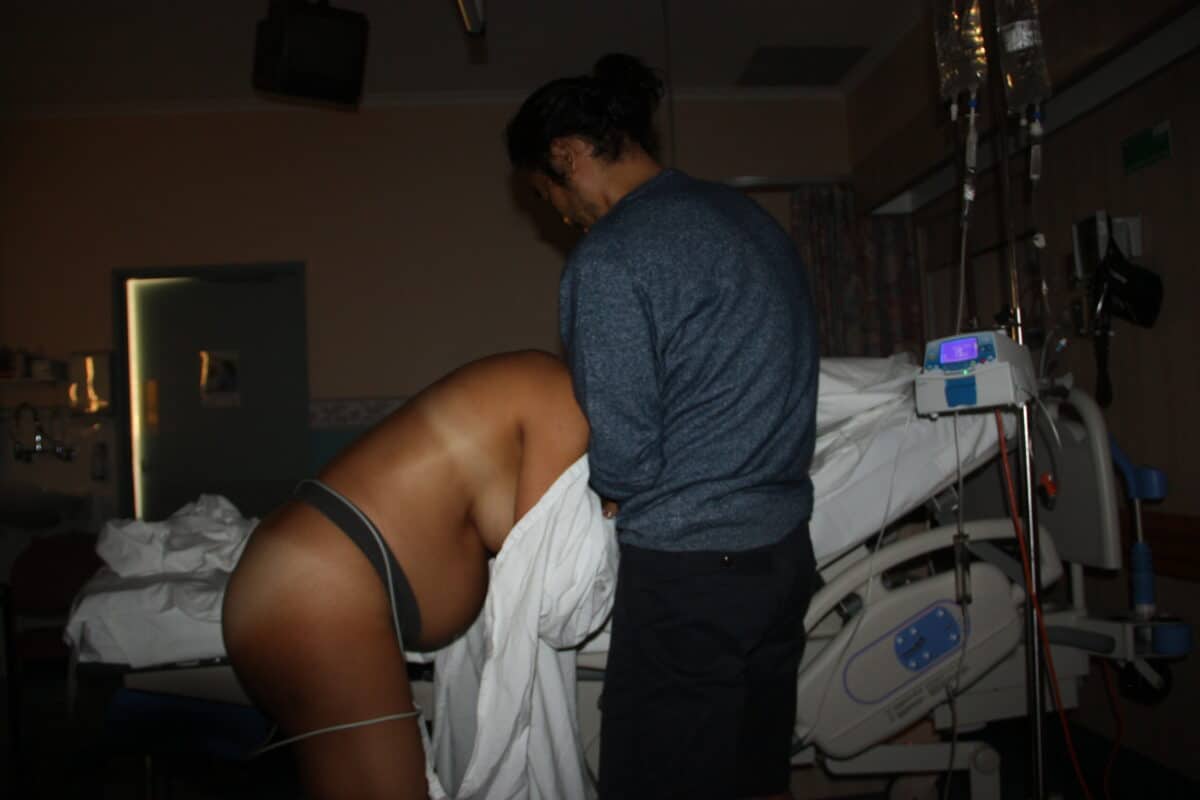
Image by Lucretia McCarthy
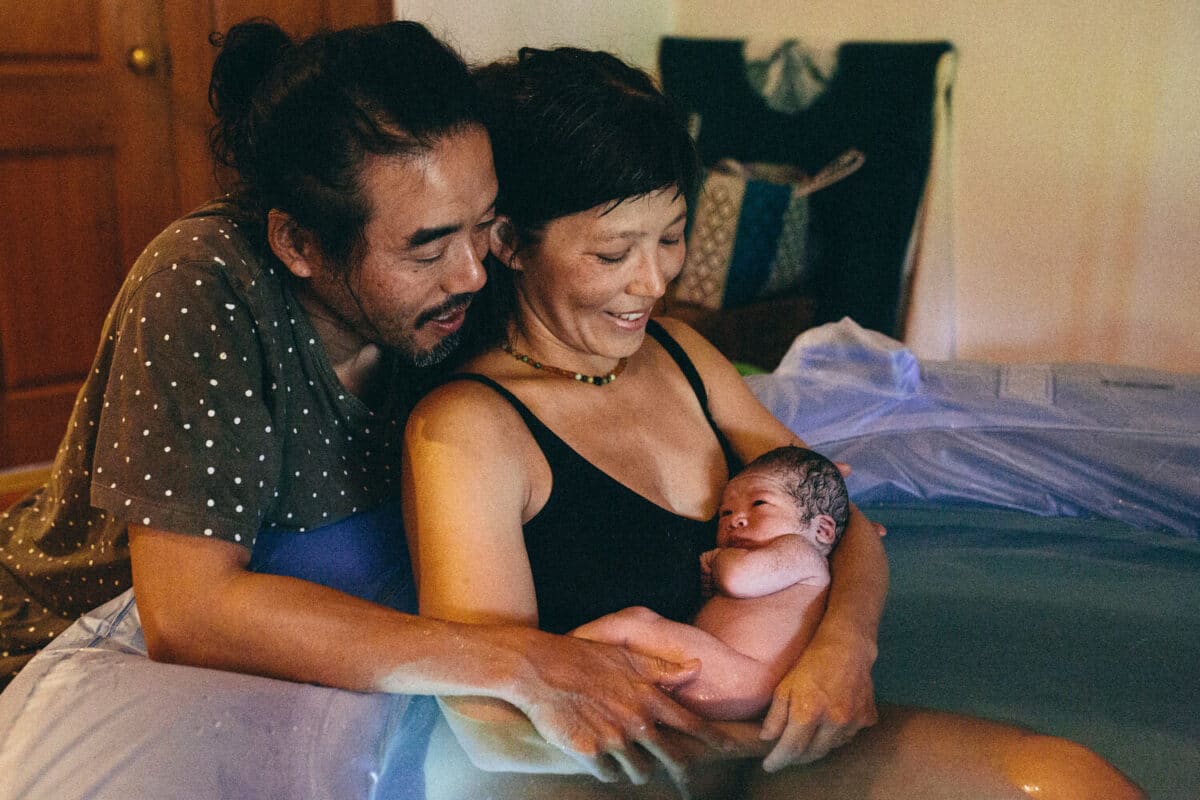
Image by Jerusha Sutton
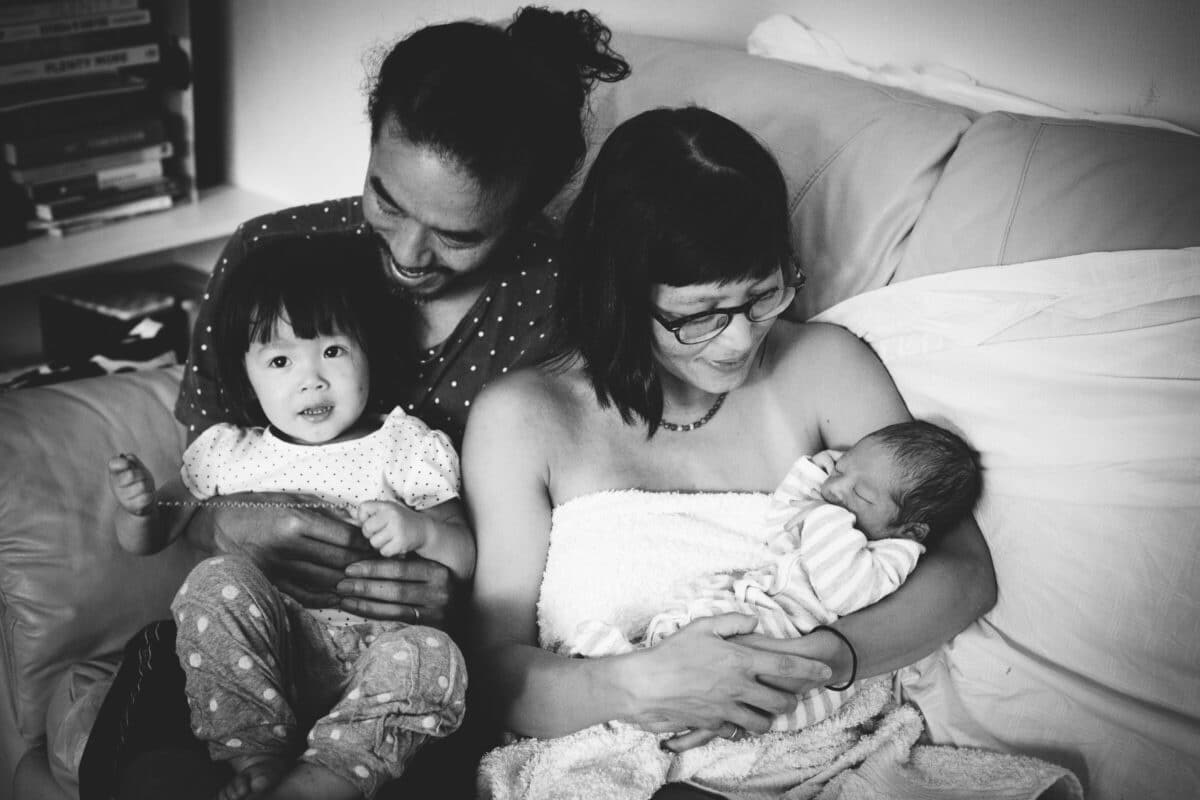
Image by Jerusha Sutton
Topics Discussed
Birth trauma, Doula, Home birth, Private midwife, PTSD, Public hospital, Racism, Retained placenta, Two Vaginal Births, Waterbirth
Connect
Yumi is an artist who painted a self portrait every day of her second pregnancy. You can purchase her artworks via her instagram page: @_yumi_takahashi_
Categories
Related Products
-
Birth Combs: Harness Your Body’s Natural Pain Relief
$24.95Crafted from smooth, natural wood, our birth combs activate specific pressure points in your hands that trigger your body’s innate pain-relieving responses.
Join the conversation
Sign up to get the latest updates, freebies, podcast releases straight into your inbox
@AustralianBirthStories
Follow along with us
@AustralianBirthStories
Follow along with us
@AustralianBirthStories
Follow along with us
@AustralianBirthStories
Follow along with us
@AustralianBirthStories
Follow along with us
@AustralianBirthStories
Follow along with us
@AustralianBirthStories
Follow along with us
@AustralianBirthStories
Follow along with us
@AustralianBirthStories
Follow along with us
@AustralianBirthStories
Follow along with us
@AustralianBirthStories
Follow along with us
@AustralianBirthStories
Follow along with us
